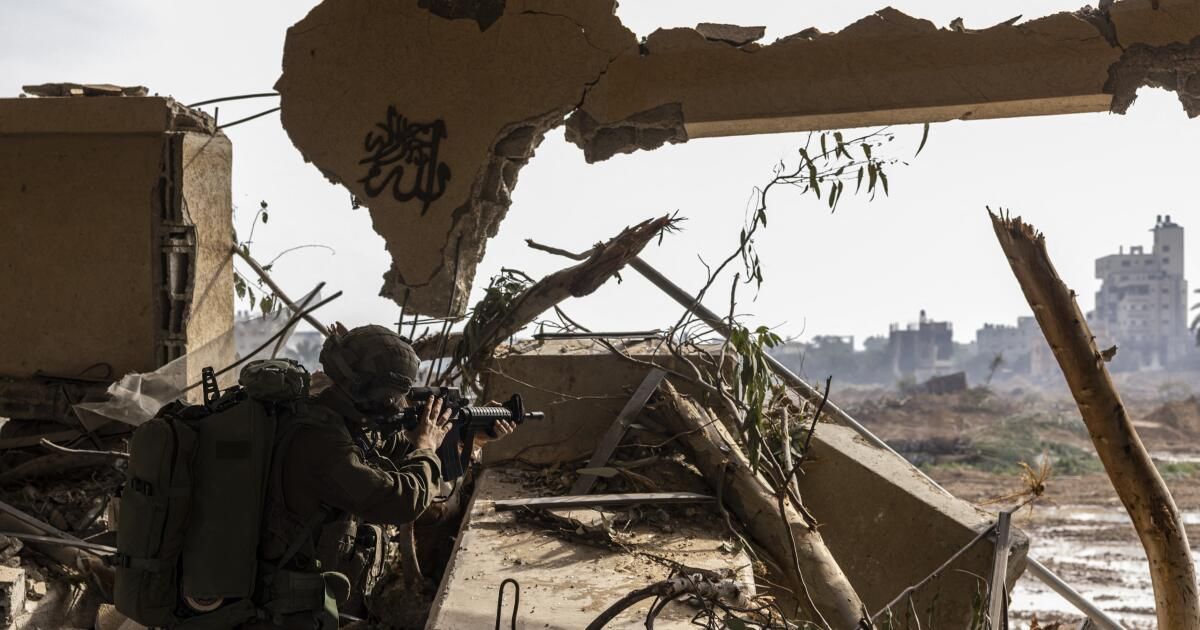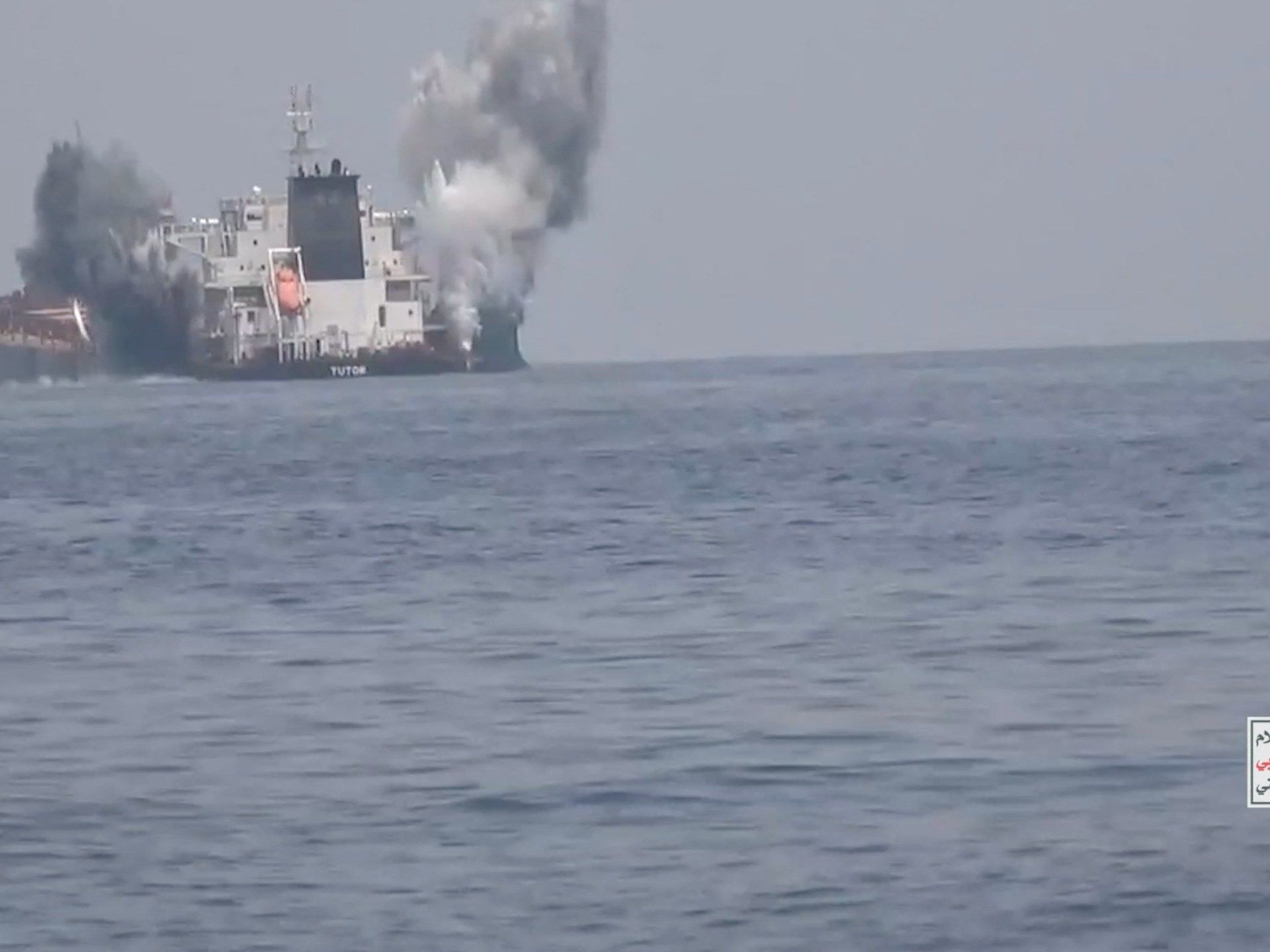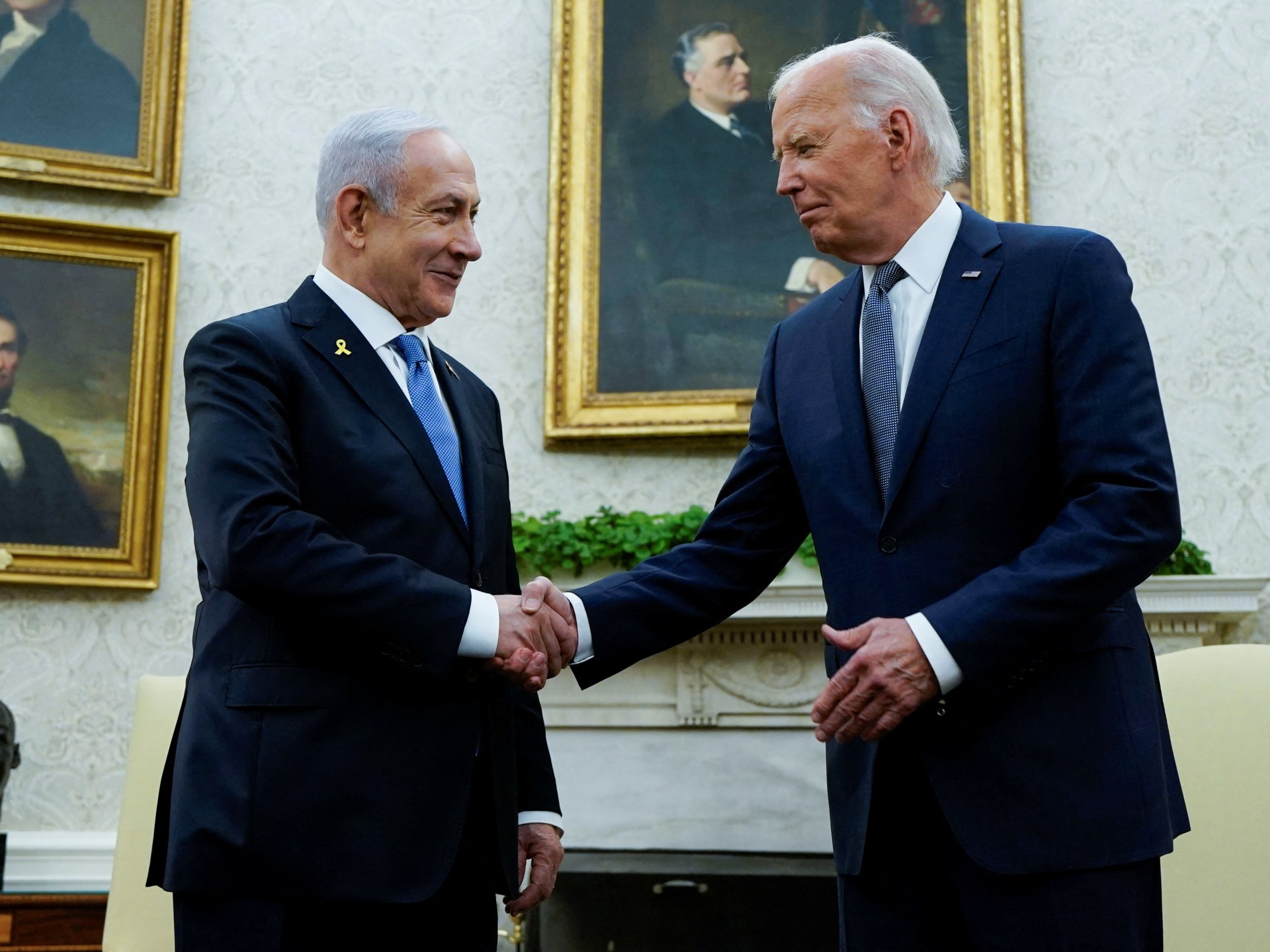The situation is very different in the West Bank, occupied by Israel since 1967. Troops are deployed throughout the territory, where Palestinian officials have only nominal authority.
The hundreds of thousands of Jewish settlers who have built and occupied villages – in violation of international law – receive military protection, move freely and are subject to an Israeli civil legal system.
Palestinians, on the other hand, face restrictions on where they can go, lose their land to settlers and routinely fight what they describe as onerous bureaucracy to obtain building permits that are easily granted to settlers. There are even separate roads for Israelis traveling through the West Bank.
Palestinian Authority riot police take control after clearing protesters near Al Menarah Square in Ramallah, occupied West Bank.
(Marcus Yam/Los Angeles Times)
Furthermore, a Jewish settler who breaks the law goes to a civilian court and often receives minimal punishment, while a Palestinian is sent to a military court often without due process, international and Israeli human rights groups say.
Israel’s supporters resist the apartheid label, arguing that the system is necessary for security reasons.
“The South African apartheid system was driven by unequivocal racism in which people were separated in all aspects of their daily lives based on the color of their skin,” said Jonathan Harounoff, director of communications at the Jewish Institute for National Security. in the United States, a Washington institution. group of defenders.
“In the West Bank, on the other hand, any restrictive policies in place toward Palestinians are not based on race or religion. “They are driven exclusively by security concerns as a result of past acts of terrorism that resulted in the loss of Israeli lives.”












